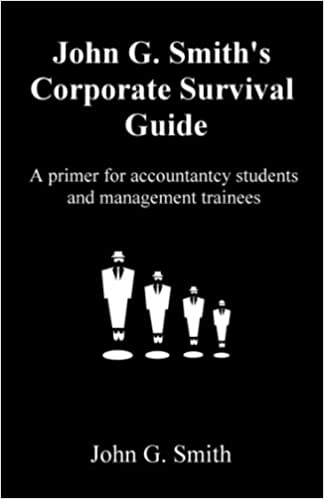Management Consultancy – The Good, The Bad & The Ugly?

Reasons to employ a management consultant.
What are the benefits of a management consultant? – Are management consultants necessary? – The good, the bad and the ugly.
The good reason to employ a professional firm of management consultants is to get an independent recommendation on how to address a specific problem. The absolute essentials are
1. Agreeing defined and understood terms of reference for a study.
2. Vetting the actual consultant/s put forward by the firm.
3. Exerting no influence on the study and mandating all affected managers to cooperate fully.
The bad reason is to fill a gap in management talent. If an insider can do the job and that person is missing, then employ him/her. – The ugly reason is to substantiate a decision already taken.
The management consulting dimensions
Fundamentally there are two critical dimensions of change in the organisation of a management consulting assignment.
The first dimension is technical. The client expects considerable technical expertise. It might for example be in strategic planning, manufacturing process, international finance, IT or in many other specialist areas. But, first and foremost, the client is buying specialist knowledge of a specific consultant and backed by the broad bank within his/her organisation. In dealing with the problem in hand, the consultant applies a rigorous problem identification method. This includes collecting, verifying and cross-checking facts, challenging assumptions and impressions and subjecting all findings to thorough diagnosis.
The second dimension is human. The client and the consultant must identify their respective roles to make sure that these are complementary, supportive and understood. The aim is to get the client’s full cooperation so that there is collaboration throughout. In this way, the solution is a joint achievement. In the author’s book Barn Door To Balance Sheet, you will note the practice of appointing a “secondee” from the client staff at an early stage. This is one way to achieve the human dimension.
Phases of the management consulting process
Typically there are five phases to a management consulting job. Each can be subdivided as follows
1. The management consultancy process.
Entry
a. Initial contact with the client
b. Preliminary problem diagnosis
c. Assignment planning
d. Proposal to client
e. Consulting contract
2. Diagnosis
a. Fact finding
b. Fact analysis and synthesis
c. Problem examination
3. Action planning
a. Developing solutions
b. Evaluation alternatives
c. Presenting proposals
d. Implementation planning
4. Implementation
a. Assisting the client
b. Adjusting the proposals
c. Training
5. Termination
a. Evaluation of results
b. Final report writing
c. Settling commitments
d. Follow-up plans
e. Withdrawal (Lone Ranger rides into the sunset)
Nine steps to use a management consultant effectively
1. Define the problem
Ask yourself what is or could go wrong. Why do you want to improve. Do you really need an outsider. Are you sure that your own people cannot solve the problem. Is the push to employ a consultant coming from your staff because if so, make sure their expressed need is precise. Keep an open mind on the definition of the perceived problem, the selected consultant may change your mind about what the problem really is.
2. Define your objective
Write your objective down but be prepared to be flexible after having spoken to your chosen consultant. Be specific. An objective is an outcome. What do you want out of this project.
3. Choosing a management consultant
This step is very important. Never, ever pick on the one who happens to be around or approached you. Use official sources of consultants, get detail of their capabilities, clients and past successes. Check things out. If in doubt, test the selected consultant on a small assignment first.
4. Recognise the unusual situation
The consultant is not an employee. His very presence creates an anomaly. Reach an agreement on the programme of work, timetables and deadlines. Decide on the format and timing of reports. How will your staff cooperate with the outsider, what instructions must be issued.
5. Get involved directly
Inform your people what is going on. Make your staff available. Provide all relevant information to assist the study. But after all this, let them get on with their work.
6. Implementation is all
Set the dictum that the consultant will implement his recommendations. This focuses on practicality.
7. Monitor progress
The results of the job must be logged accurately and readily and decisions taken instantly if deviations from the plan occur or seem likely to.
8. Evaluate results
Results must come from hard facts. What has changed. Will the changes be long-lasting. What problems remain, what problems have been created.
9. No dependence
A consultancy assignment is a “get in and get it fixed” job. Avoid the trap of referring problems you or your staff should be able to solve themselves.
Paying For Management Consultancy. A short but sweet article.
There was a time when all management consultancy assignments were paid for on a time basis plus costs. It did make selling jobs difficult and for that reason it would be normal to suggest an initial short, sharp project with restricted terms of reference. This was done on the “puppy dog” principle that when you get to know us, you will love us. Once, I created a record for Price Waterhouse by doing 19 separate assignments for the same client.
Times are changing. Latest statistics show that whilst 50% of all work is still on a time-charge basis, 40% of projects are set at a fixed-price. Clearly this moves some risk to the consultancy firm. What is significant is that the remaining 10% (and growing rapidly) of jobs are charged on a risk-reward or a payment-by-results basis. Two of the most prestigious (and secretive) firms, both American, do most of their work this way. From a management standpoint, this risk basis holds much attraction.
Management consultancy as a career
Management consultancy is a professional career. It is likely to be chosen fairly soon after obtaining a good university degree and perhaps also a secondary qualification such as an MBA. Many graduates of a professional qualification choose consultancy, for example, accountants, lawyers, marketeers, engineers and computer specialists. Once in the profession, specialist firms are now so large that they provide a career structure to match anything found elsewhere. A career path might typically be from a junior consultant to management consultant, senior consultant, manager, senior manager to director. Consultancy demands managing just like all occupations do. It follows that consultancy and general management are not divorced disciplines
What personal qualities must a management consultant possess? The seven traits listed below are not in order of magnitude. As in all walks of life, some will have particular strengths and weaknesses. One big difference in this profession however is that there is no place to hide. The consultant is on show and up-front. It is not for the timid
1. Ethics and integrity – honesty, recognition of competence limitation, genuine desire to help
2. Strong physical and mental health – able to sustain a punishing work and social schedule
3. Personal drive – self confidence, ambition, entrepreneurial spirit, courage
4. Intellectual and emotional maturity – behavioural stability, absolute independence, withstand pressure, stay calm and objective
5. Intellectual ability – learn quickly and easily, gather facts accurately, sound judgement, original thinking
6. Understand others – tolerance and respect for others, anticipate human reactions, gain trust and respect, good manners
7. Communication skills – listen, skill in oral and written word, teach and train, persuade and motivate
FAQ’s On The Pros and Cons Of A Career As A Management Consultant.
Why you should want to be a management consultant
1. Because you are not content to join as an officer cadet. To work your way through the ranks, ok – advancing by talent but also held back by lack of experience and seniority. You want to be parachuted onto the front line. It will be dangerous and you will confront an enemy battle hardened and stealthy. But you want to do it anyway, you want to make a difference and quickly.
2. Because, unless your daddy is a big-shot, it is the only way to get into a big company near the top and tackle a one-off problem without the burden of every-day line management stuff.
3.Because you can rise above your technical qualification and think about management and (hopefully) strategic issues. If you aspire to the top, it is the perfect training ground for ignoring disciplines and thinking laterally.
4. Because you will be working with colleagues of a similar bent. Energetic go-getters like yourself but from a different background. You will spark off each other. You will learn important tricks really fast. Tricks like planting an idea for them to adopt as their own, like seeing the wood for the trees.
5. Because it is the short-cut route to the top. You were placed at the top and you intend to stay there. You deal with the top managers and if you do a good objective job, you will get approached. It beats mind-numbing interviews into a cocked (top) hat
Why you would not want to be a management consultant
1. Because of the stigma. “Management consultants borrow your watch to tell you the time”. Definition of an expert ” X ” unknown quantity, Spert ” a drip under pressure” Very funny.
2. Because you might not get the chance to consult at all. Management consultancy is a big generic label. You might be placed to fact-find only, to implement only, to satisfy a political brief where the answer is pre-determined.
3. Because consultants are advisers. It may not suit your character. Advice can be very subtle with no kudos to the giver. You may want direct control, consultants work through others.
4. Because a proper management consultancy assignment is very hard work. Situations have to be assessed real fast, people have to be weighed up real fast and emotions put to one side, objectivity is all. Time pressure is extreme. Not everyone is cut out for this .
5. Because domestic/social life can go up in smoke, the lifestyle may be unacceptable.
jgs 2010



